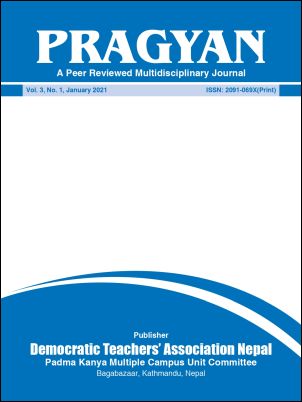A Variance-Ratio Test of Random Walk in the Stock Markets of Selected South Asian Countries
DOI:
https://doi.org/10.3126/pprmj.v3i1.61412Keywords:
variance ratio test, random walk, efficient market hypothesis, NEPSE Index, BSE Sensex, DSE Index, KSE 100 IndexAbstract
Over the past many years, researchers in finance, economics, and other related fields conduct intensive studies to examine whether stock prices follow a random walk. They, used various statistical techniques, often document mixed findings. In this paper, the random walk hypothesis is assessed using the relatively fresh data, NEPSE Index, BSE Sensex, DSE Index and KSE 100 Index of the Nepalese Stock market, Indian Stock Market, Bangladeshi stock market and Pakistani Stock Market from February 2012 to November 2017.The study is based on the Lo and Mackinlay variance ratio test. The empirical result explored that the Nepalese stock market follow the random walk model but Indian, Bangladeshi and Pakistani stock market do not follow the random walk.




